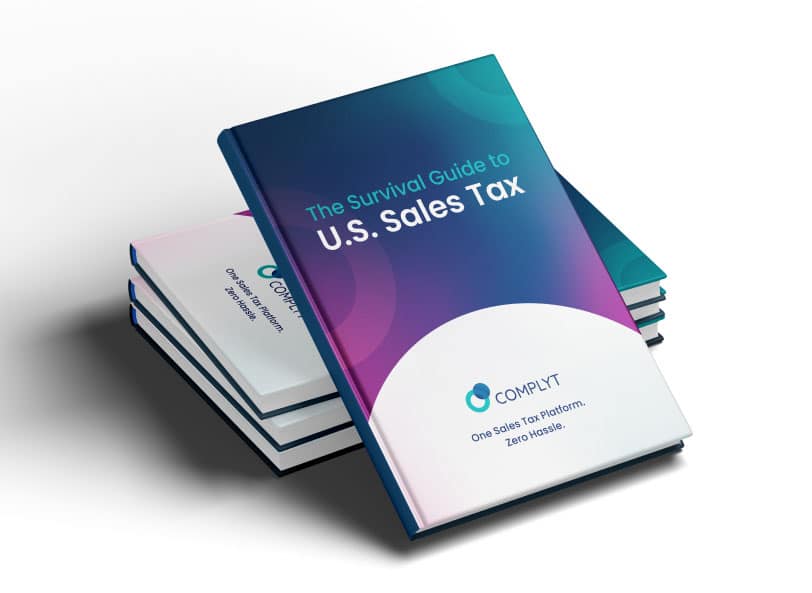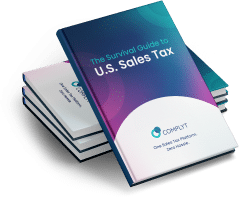What is the current sales tax rate in Florida?
The sales tax rate in Florida is 6%, with only a few exceptions. However, this rate can increase based on the county discretionary sales surtax, ranging from 0% to 2.5%, meaning that the total tax rate could be as high as 8.5% in some Florida counties.
Because these rates apply differently to the sale of tangible personal property and certain services, business owners should ensure they’re charging the correct rate for each sale based on their customers’ location and their own nexus.
Wondering whether your business should collect Sales Tax in Florida?
As with all sales tax obligations, businesses need to collect sales tax in Florida once they have triggered a sales tax nexus in the state. This can occur through a physical presence, such as a shopfront, warehouse, or office, or an economic presence, such as surpassing a certain amount of sales or transactions within the state.
Unraveling Florida Physical Sales Tax Nexus
Businesses have a physical sales tax nexus in Florida if they have a physical presence in the state. This includes owning or leasing property, employees, including salespeople, repairmen, or delivery people, and maintaining a stock of goods in the state.
Your Physical Nexus Checklist for Sales Tax in Florida
- Having a location or office in Florida
- Employees present in the state
- Storing inventory in a Florida warehouse
- Using a drop shipping service from a Florida location
Florida Economic Nexus: Understanding the Role of Revenue, Thresholds, and Transactions
As of July 1, 2021, businesses that exceed $100,000 in transactions in the previous year are obliged by Florida State Law to collect and remit sales tax in the following year. This means “remote sellers” from other states may need to comply with Florida sales tax compliance laws even if they have no physical presence in the state.
Which services are taxable in Florida?
Services are generally not taxable in Florida, with a few exceptions that businesses need to be aware of to avoid exposure.
These are a few examples of the services taxable in Florida:
- The repair and maintenance of real property
- Communications services
- Corporate and commercial pest control and cleaning services
- Protection services, including detective work and burglar protection
Florida Sales Tax on Products: How to Calculate What Your Business Should be Charging
The sales tax a business should charge in Florida depends on the sales tax rate in the county where the sale takes place. You can calculate the tax by multiplying the sales price by the total tax rate (state rate plus county surtax if applicable).
How much is Florida clothing tax?
Because clothing falls under the sale of tangible personal property, it is subject to sales tax in Florida. As such, the sales of clothing items is taxable at the state rate of 6% plus any local surtax applicable in constituent counties.
Florida Online Sales Tax: Are SaaS and Digital Services Taxable in Florida?
As with most states, the taxability of SaaS (Software-as-a-Service) and digital services is still an evolving landscape in Florida. Currently, SaaS and other digital products are not subject to statewide sales tax in Florida.
As such, both software subscriptions, custom software that is downloaded remotely, and downloadable digital products are not taxable for now, as there is no transfer of tangible personal property.
Does my Business Need to Charge Sales Tax for SaaS in Florida?
Not yet. But once software of any form and digital products form part of a tangible physical product, they are treated as physical products and businesses must apply the correct sales tax rate on each sale.
Businesses also need to be aware that legislation surrounding Florida SaaS sales tax and the taxability of digital products is constantly evolving to address the changes in the digital business landscape.
How can a business get a sales tax permit in Florida?
A business can register for a sales tax permit in Florida by applying online at the Florida Department of Revenue (FDOR) website. The registration process is entirely free. Once approved, the business will receive a Florida Annual Resale Certificate for Sales Tax, which allows the business to collect sales tax.
Collecting Sales Tax in Florida as a Business
When collecting sales tax in Florida, businesses must apply the correct Florida sales tax rates based on the location of the sale (applying the 6% state rate plus the additional county rate which can result in a total of up to 8.5%).
Businesses that have triggered a nexus must collect tax at the time of the sale and remit it to the FDOR.
Florida Tax Return Due Dates Explained
Sales tax returns and payments are due on the 1st and late after the 20th day of the month following each reporting period. If the 20th is a Saturday, Sunday, state holiday, or federal holiday, returns and payments will be timely if they are postmarked on the first business day after the 20th. Because even the tax man deserves a break every now and again.
What is the required frequency for sales tax returns in Florida?
The frequency of sales tax returns in Florida is determined by the amount of tax the business collects. Most businesses file monthly, quarterly, semiannually, or annually. The FDOR will notify businesses of their filing frequency when they register for a sales tax permit.


